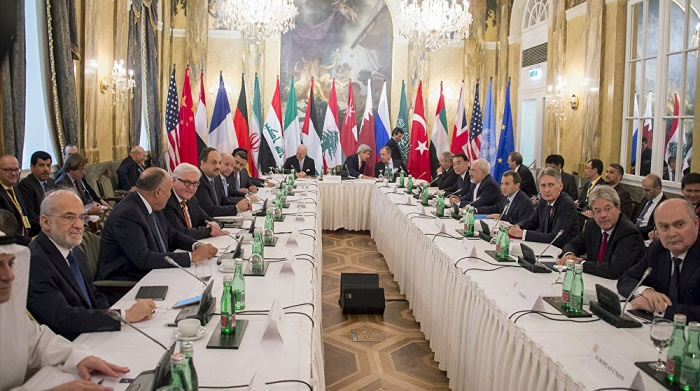Iranian Diplomacy and the Vienna Conference

The Vienna Conference on Syria was held as a continuation of the Geneva-1 Conference wherein the US intended to impose its policies on the region and Syria. But contrary to the first conference, this time more effective countries were present in Vienna. Despite the hostile and negative view of the western countries, particularly the US and France, the existing realities in Syria caused them to withdraw from their past positions and admit to their wrong approach. Inviting the Islamic Republic of Iran to take part in this conference is indicative of this fact that without the presence of the main players and consulting with them there is no hope for the resolution of this crisis.
The presence of the Islamic Republic of Iran in the Vienna Conference is due to its valuable experience and capacity in this regard and an investment which the other parties cannot easily ignore. What was discussed in the Vienna Conference among the participating countries was the same as the view of the Islamic Republic of Iran in previous years, stressing that no country should impose its policies on Syria. Basically, without considering the will of the people, no solution could resolve the issues of that country. Syria is not an exception to this rule. What was obvious in the Vienna Conference was the profound difference between the participating countries. Some states, like the US and Saudi Arabia, still beat the drum of war and supporting terrorism and others, including Iran and Russia, propose a logical solution based on people’s will to reach sustainable and long-term peace. Although it is not expected that this conference would be able to heal the sufferings and wounds of the Syrians, who since many years ago have been victims of terrorism and violence, the mere invitation and presence of the most significant players is in itself positive.
In crises such as the crisis in Syria, the first step should be halting the bloodshed, terrorists dropping their arms and stopping foreign support of their activities, separating the groups which oppose terrorism and preparing the ground for the participation of all layers of the society with the axis of a legal government to choose the best and least costly path. Since the US and Europe were faced with the flood of migrants and asylum-seekers, they felt threatened and the US started to impose its realities on European countries and opened their eyes. The international community should have comprehended that the present crisis has not yet reached mid-way. The growing number of immigrants and the return of members of ISIS to Europe could threaten the security of Europe. Insisting on unjust positions and dictating them to the people of Syria will not succeed as has been the case during the past few years; it is the people of Syria who should decide about who should lead their country. If the US and its allies take note of this point, the crisis in Syria will be resolved much faster. But we must wait and see how prepared the US and some countries are to set aside their stubborn and illogical policies.

